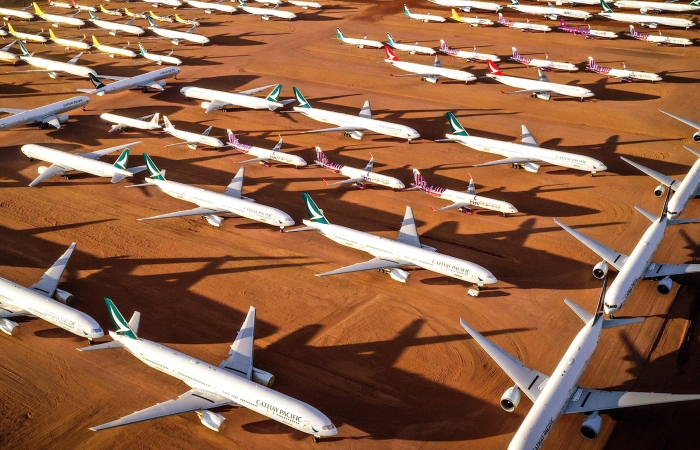The aviation industry continues to nurture rules that take no cognisance of the fact that airlines are suffering due to the pandemic. Can we not temporarily do away with orthodox regulations until such time normality returns?
Just recently, the Lufthansa Group confirmed that it had flown 18,000 empty flights just to keep their slots at major airports – a requirement of the European Union rules. While the minimum has been reduced from 80 per cent of their scheduled take-off and landing slots to 50 per cent since the pandemic, airlines are still struggling to meet the target.
How do airlines that have currently pivoted towards survival mode cope with stringent and sometimes irrelevant rules in the current scenario? The answer is, they aren’t. Indian airlines continue to fly towards historic losses, with a potential loss of `20,000 crore for the whole financial year, according to a Crisil study, as they deal with the third wave of the COVID-19 pandemic and rising fuel prices. According to Crisil, the airlines are likely to post their largest-ever net loss of over ` 20,000 crore this fiscal, up 44 per cent from the ` 13,853 crore they lost the previous year. The research, based on three main listed airlines — Indigo, Spicejet, and Air India — which together control 75 per cent of domestic travel, cautioned that this would postpone the industry’s recovery beyond 2023.
What about the idle fleet?
By mid-April 2020, the inactive fleet went up to almost 14,400 – over two-thirds of the 22,000 mainline passenger airliners – leaving 7,635 in operation, predominantly in Europe, where less than 15 percent are operating, than in North America (45percent) or Asia (49 percent). Consequently, demand for aircraft storage increased to the point where runways and taxiways in normally busy airports such as Frankfurt Airport and Atlanta Airport were closed to make room for them.
The A380 saga was even more tragic as photos of aircraft of carriers such as Cathay Pacific and Singapore Airlines were seen parked in Alice Springs airport, Australia for more than a year. Qantas stored part of its fleet at Victorville Airport in California’s Mojave desert. As a result of the downturn, analysts expect airlines to reduce the size of their fleets.
It’s the same story in India
The landscape in India wasn’t too different either. But last year’s Union Budget introduced a slew of reforms, such as the announcement of a tax holiday on capital gains and exemptions on payment of aircraft lease rentals and royalties paid to foreign lessors, in order to promote an Indian aircraft leasing and financing industry in India’s first IFSC centre, established at the GIFT City, Gujarat.
As far as the 2022 Union Budget is concerned, rating agency ICRA has reported that the Indian civil aviation industry expects financial aid from the government and a reduction in levies and taxes in the immediate near term to revitalise operations. These include lowering taxes on ATF and reducing airport charges. Budget recommendations also include suspension of the minimum alternate tax for at least two years, or a reduction in MAT from about 18 per cent to 5 percent.
 TravTalk India Online Magazine
TravTalk India Online Magazine





